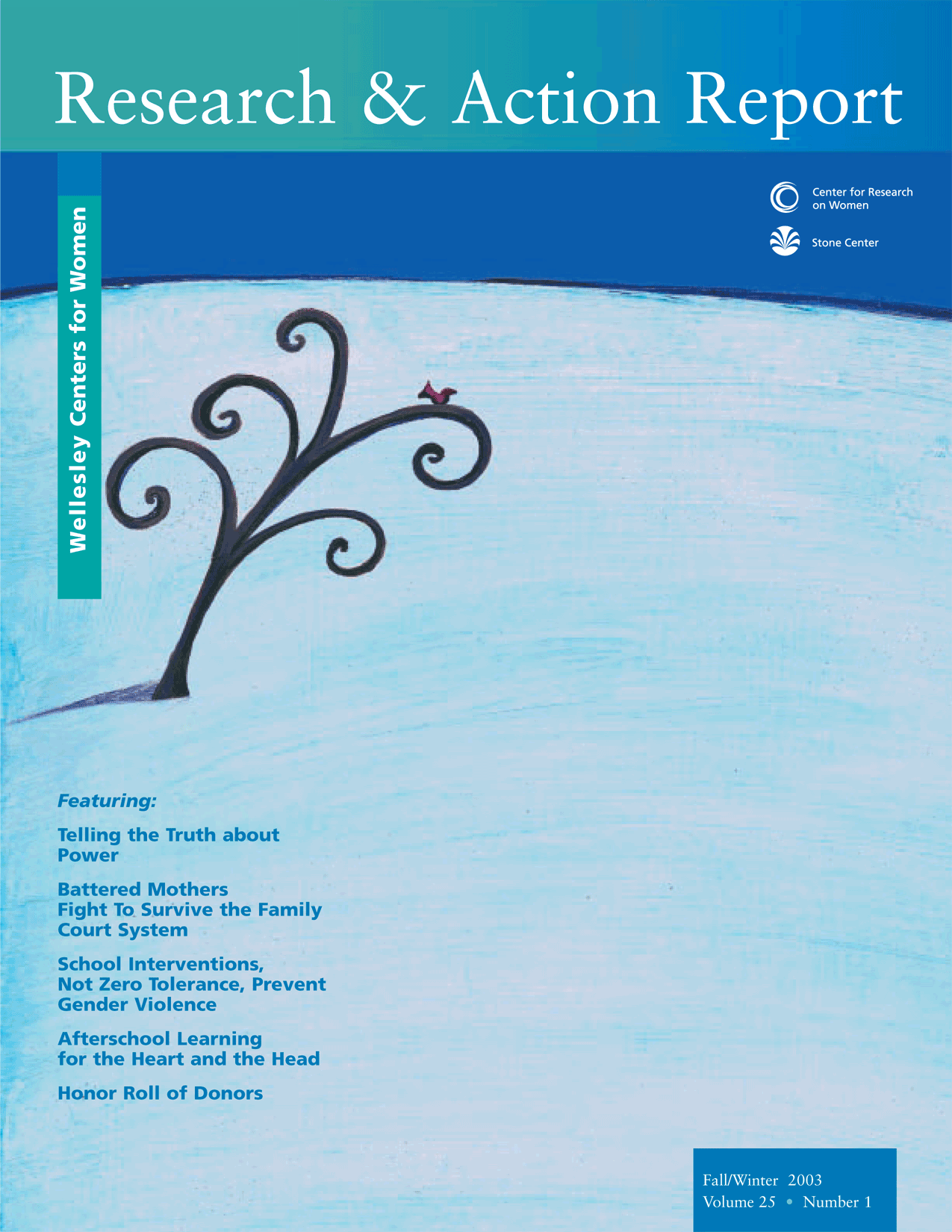Research & Action Report Fall/Winter 2003
The announcement by the Wellesley Centers for Women of plans to host a spring 2004 conference, Innovations in Understanding Violence against Women, has generated unprecedented interest from all parts of the world. To date, more than 300 abstracts for conference presentations have been submitted from 45 countries, evidence of how much this subject is on the minds of researchers, advocates, activists and governmental as well as nongovernmental leaders everywhere.
Many of us in this society are mixed up about power. Yet power is very real and is operating right in front of us all the time. Quite amazingly, those who have the most power in our society almost never talk about it, and, even more amazingly, they induce many of the rest of us not to recognize it, either.
Human rights abuse charges are commonly used to attempt to tarnish political leaders and institutions in other countries. However, when the human rights lens focuses on U.S. institutions, such as the Massachusetts family court system, alarming cracks appear in the American assumption of justice at home. The Centers' Battered Mothers' Testimony Project (BMTP) has found that battered women often face yet another form of abuse in court.
Effective materials for students, school personnel, and parents are critical to combating bullying and sexual harassment in schools. Creating such tools is a core interest of senior research scientist Nan Stein, a former middle school teacher whose work ranges from anti-bullying and harassment curricula to new work on the dangers that zero tolerance laws pose to children's civil rights. The sale of more than
75,000 copies of Stein's three curricula attests to the need for such classroom tools.
The battle for afterschool care has evolved in the past 20 years from the urgent need to create safe, affordable programs to rising demands for good programs that use afterschool time strategically. Although increasing pressures from the nationwide curriculum reform and standardized testing movements push afterschool programs to focus on academic goals, the precious hours between classroom and family room need to include genuine relationships with caring adults outside the hierarchies of school or family, according to the leaders of the Bringing Yourself to Work (BYTW) program.
Page 1 of 2

In this issue:
 | Wellesley Centers for Women 781.283.2500 |
Copyright © 2025 Wellesley Centers for Women, Wellesley College | Privacy Policy
National SEED Project | National Institute on Out-of-School Time
